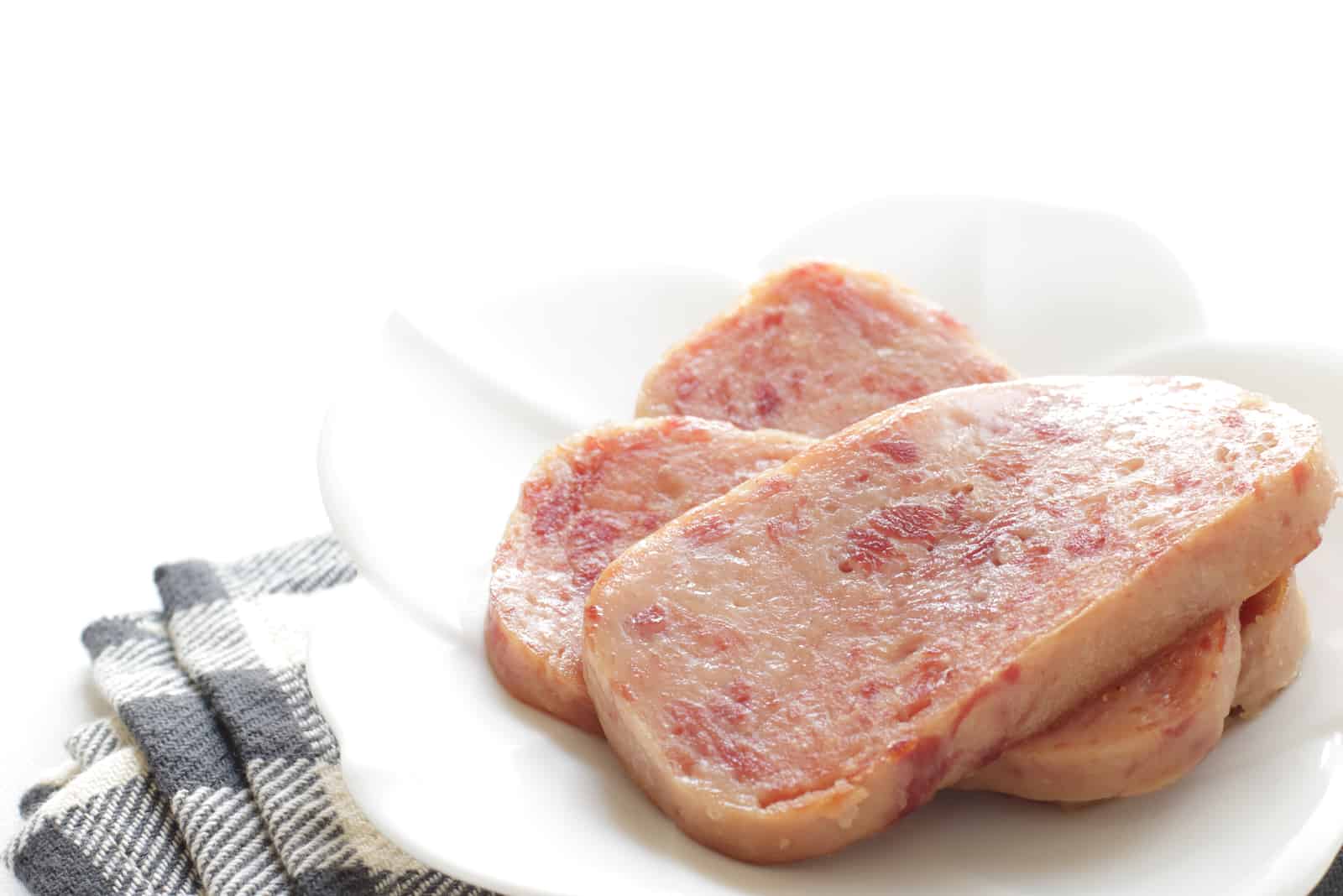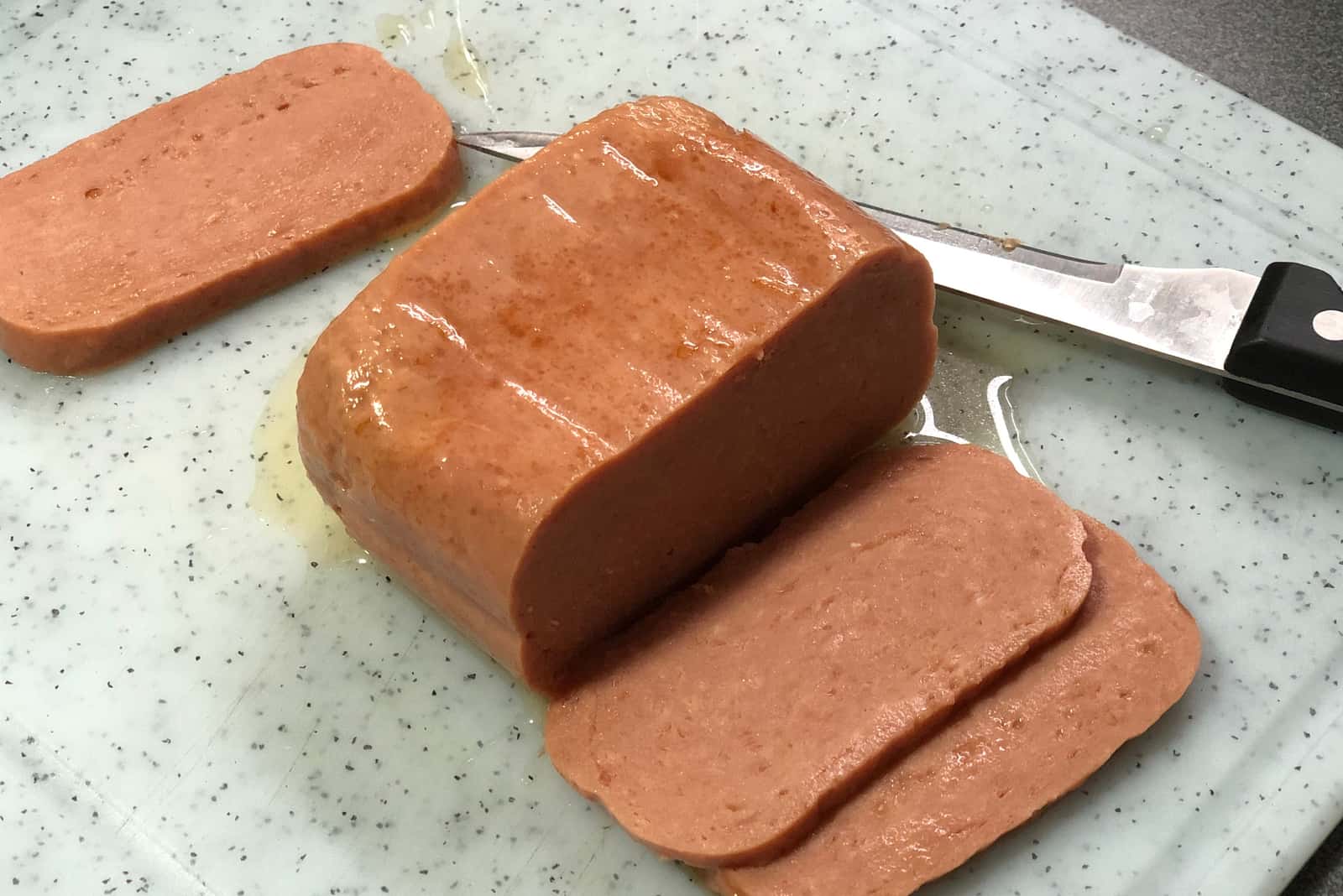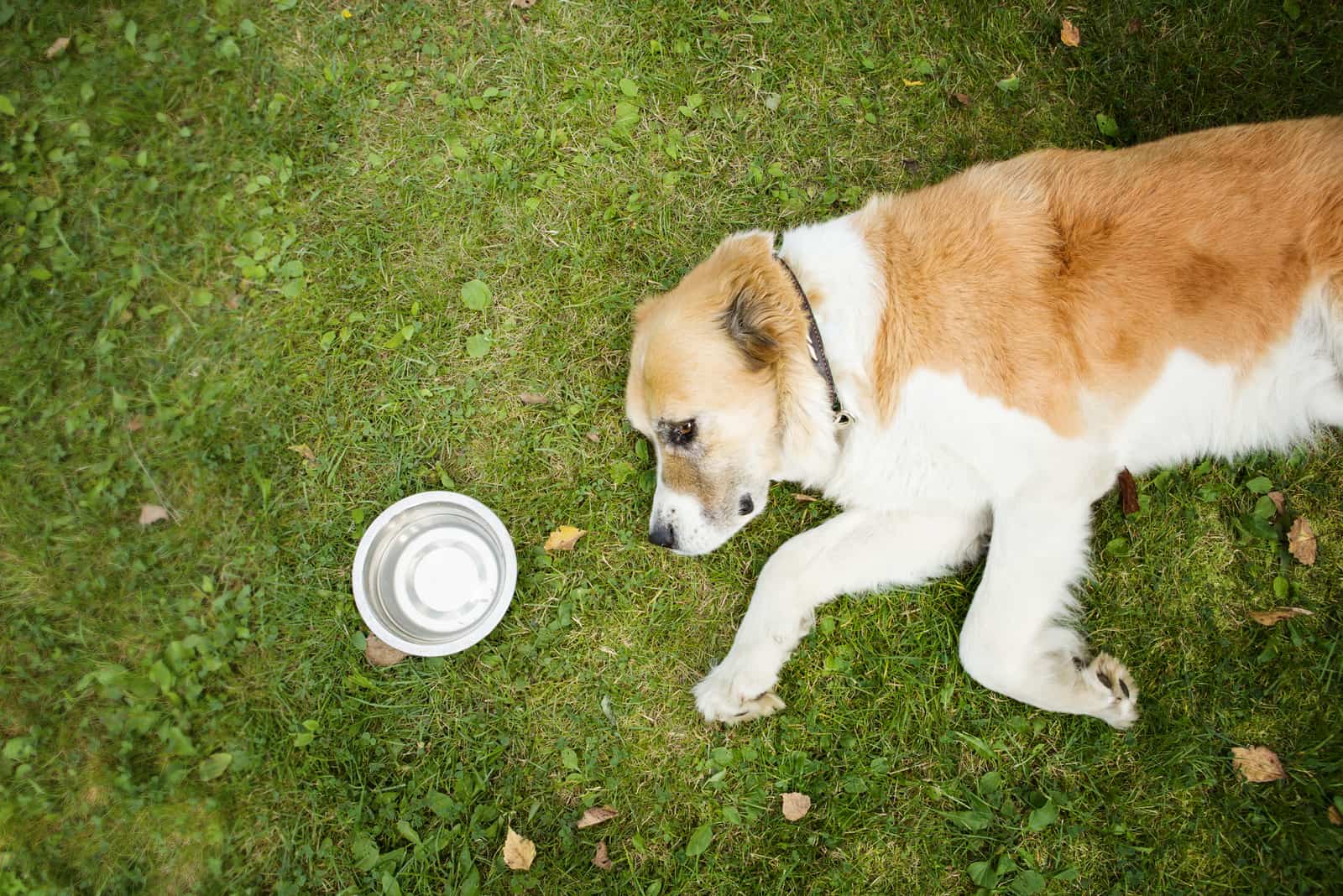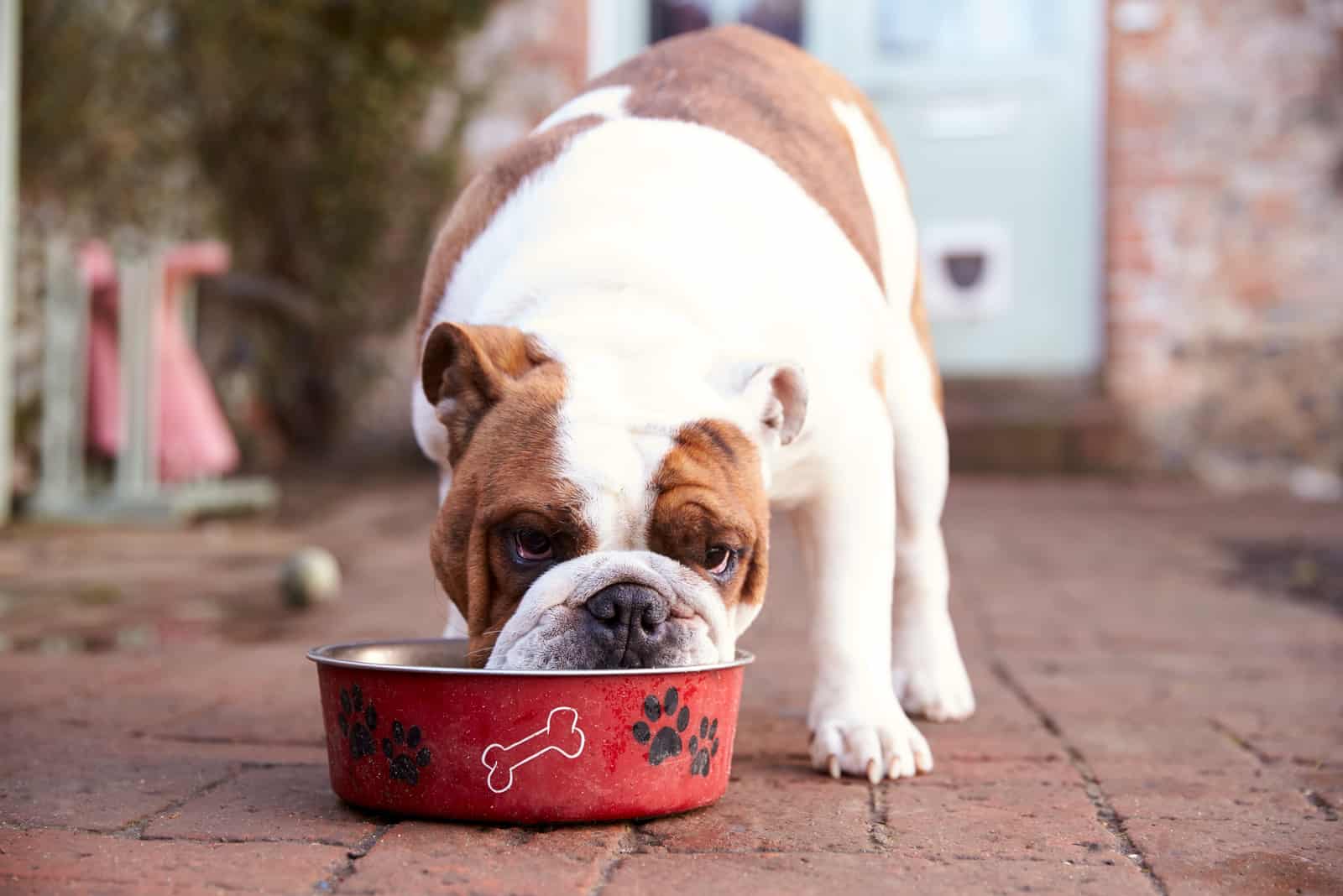All dog owners want nothing but the best for their pets. However, sometimes we just have to give in to the look they give to us while we’re having dinner.
Still, is it safe to share everything on our plates? Knowing which food is good and which is harmful to our pets can be essential in our everyday lives.
So, what about spam? Dogs are carnivores, so this sounds like a tasty snack for them. They love all kinds of meat, and pork can be extremely delicious. So, the question remains, can dogs eat spam, or will it harm them? Actually, can dogs eat any sort of salty meat?
The short answer would be ‘no,’ but this is hardly enough to satisfy anyone’s curiosity. Because of this, we’ll dive in deeper.
Can Dogs Eat Spam?

A can of spam may seem like the better choice for a snack when compared to some other kinds of human food. You might think this is an excellent replacement for when you run out of dog treats or when you’d like to make a small change to his diet.
But is this smart? Can dogs eat spam?
Spam is a highly-processed human food, and as such, you should never make it a part of your pooch’s diet. In fact, it would be best if you avoid even giving it to him as an occasional treat.
The main ingredients in spam are pork shoulder meat and ham, which might make you think it won’t be harmful to your dog’s health. But the truth is, it also contains many other ingredients, including a high amount of salt and saturated fat.
Both of these substances are very bad for dogs, and regular consumption will result in various health complications.
Other than these two harmful ingredients, spam also contains preservatives, nitrates, garlic, and usually many seasonings. These additives can be highly poisonous for dogs and can cause vomiting, diarrhea, stomach ache, and many other problems in a dog’s digestive system.
If you leave these symptoms untreated, they can quickly become an emergency and might even put your pup’s life in jeopardy!
Because of this, it would be best if you didn’t give spam to your dog in any amount whatsoever.
Nutritional Value

To make things simple – spam is a cooked meat product made from ground pork and processed ham. This meat is then mixed with preservatives and seasonings, such as salt, sodium nitrite, potato starch, and sugar to give it its well-known flavor. Then, the mixture is vacuum-sealed.
This meat product became popular during World War II as a cheap alternative to fresh food for soldiers fighting overseas. As time passed, the product reached stores, and you can now buy it worldwide.
Spam is a popular household food item for many families. It’s easy to prepare, and you can make many meals out of it.
However, this food can be highly damaging, even to humans.
Spam is high in calories, fat, and sodium, while it offers rather small amounts of protein and micronutrients (such as iron, zinc, copper, potassium). If we were to put it on paper, spam has:
• 174 calories
• 16 grams of fat
• 7 grams of protein
• 2 grams of carbohydrates
• 7% zinc
• 4% potassium
• 3% copper
• 3% iron
As you can see, spam is high in calories while low in carbs and protein.
While none of these ingredients on their own are toxic, high amounts of nitrates and sodium can be a problem for your pup. High salt levels are very risky, and a full-grown medium-sized dog shouldn’t consume more than 100 mg of sodium daily.
However, just one can of spam has approximately 2,250 mg of sodium, which is 20 times more than a dog should eat. Not to mention that a larger pup could easily finish an entire can of processed meat in a matter of minutes!
What Happens When You Feed Your Dog Spam?

As we’ve already mentioned, spam is very high in fat and salt, which is never a good thing. If you feed your dog high-fat foods, he might experience several health complications.
Such meals can lead to diarrhea, vomiting, tremors, nausea, flatulence, or even pancreatitis (inflammation of the pancreas). While the chances of your pooch getting pancreatitis depends on many different things, such as his size, age, and breed, a bad diet increases these risks.
Not to mention that high-fat foods increase the risk of obesity and can shorten a dog’s lifespan!
Not just that, but excessive amounts of salt and sodium leads to sodium poisoning. This leads to increased blood pressure, digestive issues, excessive urination, and sometimes even death.
This is why you should never give salty foods to your dog. In fact, if you look at any canned dog food, you’ll notice there is almost no salt in it.
Sodium Poisoning

For us humans, salt is delicious. This makes it an essential part of every kitchen. We can’t imagine a meal without at least a little bit of salt in it!
However, salt can be extremely harmful to our furry friends, especially if they eat a lot of it. This is why dogs generally cannot eat spicy foods.
In fact, sodium is the issue with many other foods you might be tempted to give your pooch. This includes:
As we’ve already said, spam is a food with a high amount of salt or sodium, making it extremely dangerous for dogs. If a dog eats too much salt, he’ll experience dehydration as the first symptom. Luckily, drinking water is usually enough to help your pup feel better.
However, for some dogs, especially smaller dog breeds, eating too much salt might mean a serious medical emergency. So how can you know how much is too much?
As we’ve mentioned before, a healthy dog shouldn’t eat more than 100 milligrams of salt per day. This means that just one can of spam could cause the development of health problems, such as severe sodium poisoning.
Keep in mind that their exact salt tolerance levels depend on the dog itself. It’s important to consider features such as his breed, weight, potential underlying health conditions, as well as age.
To understand how much salt is too much for your pooch, the best thing you can do is talk to your vet. He might explain if it’s dangerous to let your pup eat a bit of spam from time to time.
A trip to the vet might even help you understand your dog’s overall health condition, as this can be crucial in knowing whether or not can he eat spam.
If your pup consumes food with too much sodium, the first symptom you’ll notice is him drinking lots of water. Then, you might notice him becoming overly tired and not behaving like his usual self. He’ll seem stiff, and his stomach will be visibly swollen.
A dog’s urination patterns will also change. He’ll either start urinating more frequently, or he won’t urinate at all. Both are symptoms of severe dehydration. Another thing to look for is watery stool.
A canine might also seem confused. You might joke about him appearing drunk, but this is a serious sign of sodium poisoning.
On rare occasions, a dog who has eaten too much salt might experience convulsions and seizures. In the worst-case scenario, he could fall into a coma, which might lead to death.
Think of these symptoms the next time you wonder, “can dogs eat spam, and will it cause them harm?”
If you notice any symptoms of sodium poisoning, the first thing you should do is give your pup a bowl of fresh water and let him drink as much as he’d like. Monitor his behavior for around 24 hours to ensure he’s okay.
However, if your pet displays severe signs of poisoning or his symptoms won’t go away, take him to the vet immediately, as his life might be at risk.
Obesity In Dogs

Not all fat is bad. Fatty acids and oils give your dog healthy, good-looking skin and a shiny, luscious coat. They are also responsible for providing energy. Without fats, your furry friend couldn’t survive.
Fats are essential for body development, including the proper functioning of cells, tissues, and muscles. As you can see, your dog’s diet needs to contain a certain amount of fat.
However, if your pooch eats too much fat, this will no longer be healthy. A healthy adult dog should eat around 3.3 g/MJ of metabolizable energy. This translates to 5% of fat according to weight in a dog’s dry food or 1.5MJ per 100 grams.
Since spam contains approximately 16 grams of fat per serving, you’ll be giving your dog much more fat than he needs. This puts him at risk of becoming overweight or even obese.
Obesity can affect dogs of any age, but you’ll mostly see it in senior dogs who don’t move a lot but still eat large amounts of food.
Weight gain also leads to unwillingness or even inability to exercise due to decreased stamina. However, it can also cause many other health issues, such as diabetes, pancreatitis, cardiac problems, hypertension, and liver disease.
While not necessarily deadly, obesity will shorten your companion’s life span. Overweight dogs live much shorter lives than canines that have a healthy weight. As all doglovers should want their pups to live healthy, long lives, giving dogs spam should be out of the question.
Pancreatitis In Dogs

As we’ve mentioned above, eating spam can lead to an increased risk of pancreatitis in dogs. While fat itself doesn’t cause this health issue, it can lead to swelling of the pancreas, which could cause inflammation.
Pancreatitis also causes plenty of other diseases, ranging from mild to severe and either acute or chronic.
If a dog (or cat) suffers from pancreatitis, its pancreas won’t work well. Instead of releasing enzymes into the digestive tract, this organ will release them into the area around the abdomen. These enzymes cause severe inflammation, which can be life-threatening.
Your dog might have acute or chronic pancreatitis. Acute appears suddenly, usually after a dog eats plenty of high-fat foods – such as spam. Because of this, dogs that dig around trash cans are more likely to develop this condition.
Chronic pancreatitis is much more dangerous. It sometimes occurs when a dog suffers from acute pancreatitis more than once. However, the exact cause of it is still relatively unknown.
Of course, your pup won’t get pancreatitis right after eating a bit of spam. He’ll have to eat salty foods for a prolonged period of time for this condition to appear.
Still, you should always know how to recognize the symptoms of pancreatitis, so you know when to react and take your dog to the vet.
Most symptoms of pancreatitis can be mistaken for something much less serious, which is why it’s very common for this disorder to remain unnoticed until it’s too late.
Some of the telltale signs of pancreatitis are repeated vomiting followed by diarrhea, dehydration, fever, and loss of appetite. Your dog might also exhibit changes in his posture, such as a hunched back or even difficulty walking.
Depression and lethargy are also common since your dog will have severe stomach pain and a lack of nutrients in his system.
If you notice any of these symptoms in your pup after he eats spam, monitor him closely. If the signs don’t go away, rush him to the vet, as pancreatitis can be fatal.
Final Thoughts

Photo from: @phantom_bully_kennels_official
So, can dogs eat spam? The answer should always be ‘no.’
Spam can be very harmful to your pooch while not delivering anything good. It doesn’t have good calories while being high in fat and salt, both of which can cause serious health conditions, such as obesity and pancreatitis.
While none of these two conditions appear overnight, it’s easy to incorrectly interpret symptoms that tell you something’s wrong.
Because of this, you should always take your dog to the vet if you notice any behavioral changes or if his digestive issues don’t go away after 24 hours.
Of course, it’s always better to be safe than sorry. While it can be difficult to resist your dog begging for a piece of your sandwich, it would be best if you could avoid giving him spam altogether.
Sure, just a bite won’t harm a healthy adult dog. However, you can never be entirely sure your pooch doesn’t have a hidden health issue that might be triggered once he eats this salty processed meat.
If you cannot resist giving your pooch some human food, there are many healthier things out there. This includes:
